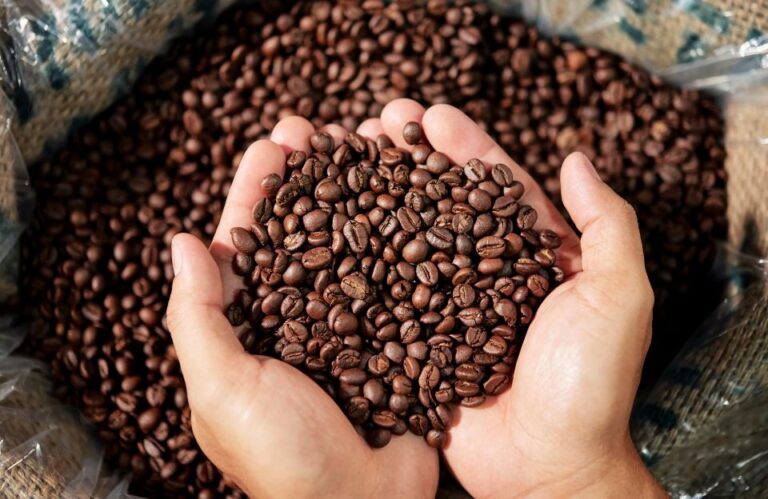Table of Contents
Coffee dehydrate you?
While coffee is a diuretic, meaning it increases urine production, moderate consumption is unlikely to cause dehydration. However, excessive intake may contribute to fluid loss, so it’s essential to balance coffee consumption with adequate hydration. Incorporating water-rich foods and beverages alongside coffee can help maintain hydration levels.
Coffee help a headache?
For some individuals, the caffeine in coffee can provide relief from headaches by constricting blood vessels and reducing inflammation. However, caffeine withdrawal headaches can also occur if someone regularly consumes coffee and suddenly stops. It’s essential to be mindful of caffeine intake and consider other factors that may contribute to headaches, such as hydration, stress, and sleep patterns.
Coffee stain clothes?
Yes, coffee can stain clothes, especially light-colored fabrics. It’s essential to promptly treat coffee stains with water and a stain remover to prevent them from setting. Pre-treating stained areas before washing can help remove coffee stains effectively. Additionally, using cold water for washing and avoiding heat during drying can prevent coffee stains from becoming permanent.
Coffee break my fast?
Black coffee contains minimal calories and is unlikely to break a fast. However, adding creamer, sugar, or other additives may disrupt fasting by triggering an insulin response. To maintain the benefits of fasting, it’s best to consume plain black coffee during fasting periods and avoid calorie-containing additives.
Coffee creamer break a fast?
Yes, coffee creamer typically contains calories and additives that can break a fast by causing an increase in insulin levels, thereby disrupting the metabolic state of fasting. To adhere to fasting protocols, it’s recommended to opt for black coffee or other non-caloric beverages during fasting periods and avoid adding creamer or sweeteners.
Coffee help you lose weight?
Some studies suggest that coffee may aid weight loss by boosting metabolism and suppressing appetite. However, its effectiveness may vary among individuals, and excessive consumption of high-calorie coffee drinks can contribute to weight gain. To support weight loss goals, it’s essential to consume coffee in moderation and focus on a balanced diet and regular physical activity.
Coffee help with constipation?
Coffee’s caffeine content can stimulate bowel movements for some individuals, which may provide temporary relief from constipation. However, it’s essential to consume coffee in moderation, as excessive intake can lead to dependence and other digestive issues. Increasing fiber intake, staying hydrated, and maintaining a healthy lifestyle can also help alleviate constipation.
Coffee make you gain weight?
While black coffee itself is low in calories and unlikely to cause weight gain, the additions commonly used, such as sugar, cream, or flavored syrups, can significantly increase the calorie content of your drink. Furthermore, excessive consumption of sugary or high-calorie coffee beverages, along with a lack of dietary balance and physical activity, can contribute to weight gain over time. It’s crucial to be mindful of portion sizes and choose options with minimal added sugars and fats if weight management is a concern. Additionally, individual factors such as metabolism and overall diet play significant roles in weight regulation, so it’s essential to consider coffee consumption within the context of a balanced lifestyle.
Coffee raise blood sugar?
In some individuals, especially those with insulin resistance, coffee may temporarily raise blood sugar levels. However, the effect is usually mild and transient, particularly when consuming plain black coffee without added sugars or sweeteners. Monitoring blood sugar levels and adjusting coffee consumption accordingly can help individuals manage their blood sugar effectively.
Coffee make you poop?
Coffee’s caffeine content can stimulate bowel movements in some individuals, leading to increased frequency of bowel movements. This effect is often attributed to the stimulation of muscle contractions in the digestive tract, which can help promote bowel movements. However, not everyone experiences this effect, and individual responses to caffeine vary. It’s essential to listen to your body and adjust coffee intake accordingly based on its effects on your digestive system.
Coffee stunt your growth?
Contrary to popular belief, there is no scientific evidence to support the notion that coffee consumption stunts growth in children or adolescents. While excessive caffeine intake may have adverse effects on bone health in adults, moderate coffee consumption is generally considered safe for individuals of all ages. However, it’s essential for children and adolescents to consume caffeine in moderation and prioritize a balanced diet for optimal growth and development.
Coffee raise your blood pressure?
Coffee may temporarily raise blood pressure due to its caffeine content, but the effect is usually mild and short-lived in most people. Individuals with hypertension or cardiovascular issues may be more sensitive to the effects of caffeine on blood pressure and should monitor their intake accordingly. It’s essential to consider overall lifestyle factors, such as diet, exercise, and stress management, in managing blood pressure levels.
Coffee break a fast?
Black coffee without additives typically doesn’t break a fast, as it contains few to no calories. However, it’s essential to be mindful of the types of beverages and additives consumed during fasting periods, as certain ingredients, such as creamer or sugar, can disrupt the metabolic state of fasting. To maximize the benefits of fasting, it’s recommended to stick to non-caloric beverages like plain black coffee or herbal tea.
Coffee filters compostable?
Many coffee filters are compostable, especially those made from unbleached paper or other biodegradable materials. Composting coffee filters along with coffee grounds can help reduce waste and enrich compost with organic matter. However, it’s essential to check the packaging or manufacturer’s instructions to ensure that the coffee filters are suitable for composting and free from any non-biodegradable additives.
Coffee shops profitable?
The profitability of coffee shops can vary depending on factors such as location, competition, business model, and operational efficiency. While some coffee shops thrive and generate significant profits, others may struggle due to high operating costs, fluctuating demand, or market saturation. Successful coffee shop owners often focus on providing high-quality products, excellent customer service, and creating a unique atmosphere to attract and retain customers.
Coffee cans recyclable?
Yes, coffee cans are typically made of recyclable materials such as aluminum or steel and can be recycled through most municipal recycling programs. Recycling coffee cans helps conserve natural resources, reduce energy consumption, and minimize waste sent to landfills. It’s important to rinse out empty coffee cans before recycling them to prevent contamination and ensure that they are accepted by recycling facilities.
Coffee grounds bad for dogs?
While coffee grounds may contain compounds like caffeine and theobromine that are toxic to dogs in large quantities, they are not typically considered harmful when used as a soil amendment or compost. However, it’s essential to keep coffee grounds away from pets and ensure that they are securely stored to prevent accidental ingestion. If a dog ingests coffee grounds or shows signs of caffeine poisoning, such as restlessness or rapid heart rate, immediate veterinary attention is necessary.
Coffee grounds good for plants?
Yes, coffee grounds can be beneficial for plants as they add organic matter to the soil, improve soil structure, and provide essential nutrients like nitrogen. Incorporating coffee grounds into compost or using them as a mulch can help enrich the soil and promote healthy plant growth. However, it’s essential to use coffee grounds in moderation and avoid applying them in thick layers, as excessive use can lead to soil acidity and nutrient imbalances.
Coffee grounds hurt plants?
In moderation, coffee grounds can be beneficial for plants as they add organic matter to the soil, improve drainage, and provide nutrients like nitrogen. However, excessive use can lead to soil acidity, potentially harming plants. It’s advisable to compost coffee grounds before using them in the garden and to monitor soil pH levels to prevent negative effects on plant health.
Coffee grounds good for tomato plants?
Yes, coffee grounds can benefit tomato plants by improving soil structure, enhancing drainage, and providing essential nutrients like nitrogen. Incorporating coffee grounds into the soil or using them as a mulch can help promote healthy root development and increase fruit yield. However, it’s essential to use coffee grounds in moderation and avoid applying them in thick layers to prevent soil acidity and nutrient imbalances.












